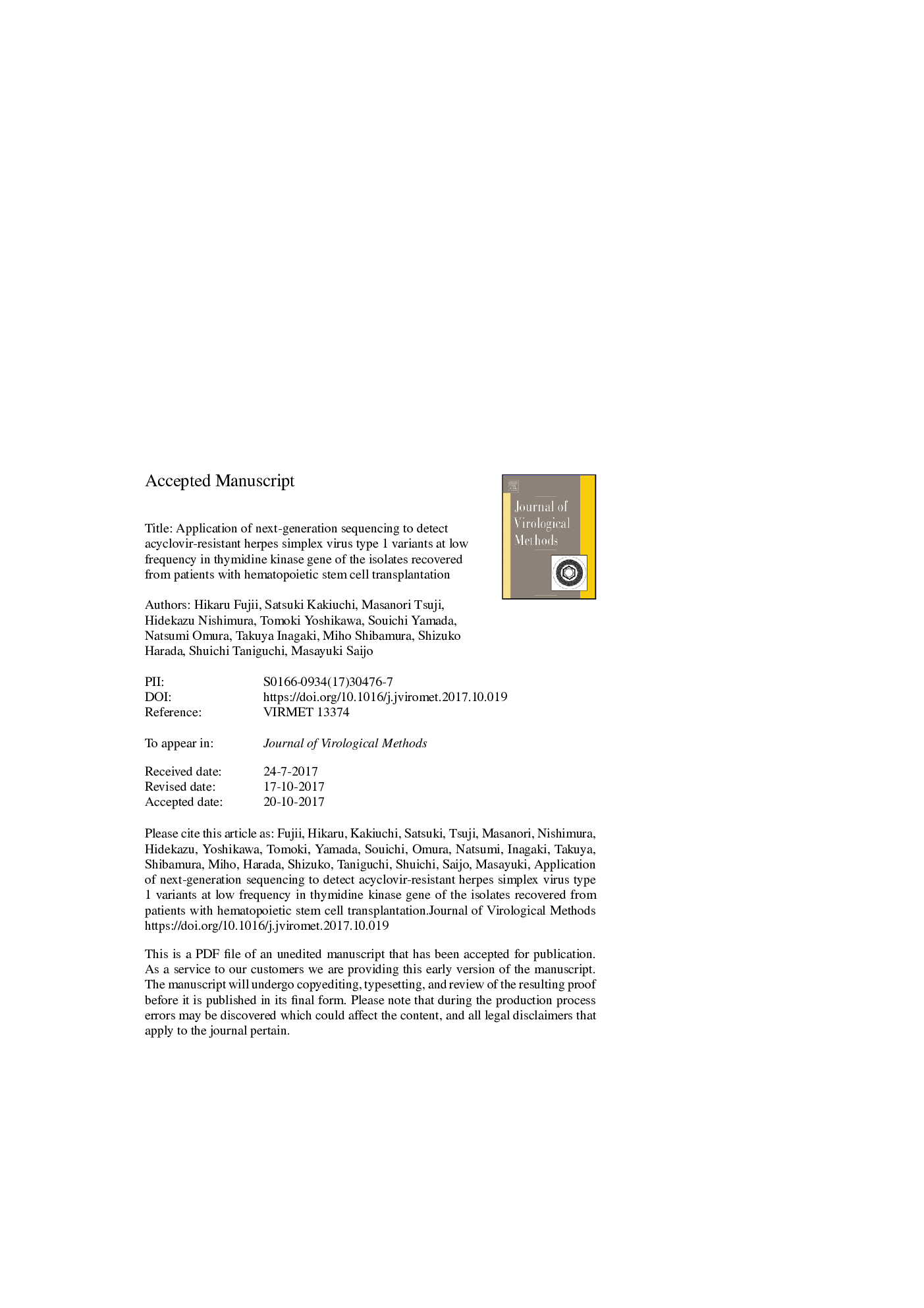| Article ID | Journal | Published Year | Pages | File Type |
|---|---|---|---|---|
| 8747163 | Journal of Virological Methods | 2018 | 26 Pages |
Abstract
Ion Torrent next-generation sequencing (NGS) technology was applied to study the mode of emergence of acyclovir (ACV)-resistant (ACVr) herpes simplex virus type 1 (HSV-1) in patients with hematopoietic stem cell transplantation (HSCT) by quantitatively detecting mutations in the viral thymidine kinase (vTK) gene in the HSV-1 isolates recovered from HSCT patients. All of the mutations detected with the Sanger sequencing method in the vTK genes of HSV-1 isolates were also detected with the NGS assay. Furthermore, different mutations, which conferred ACV resistance and were not detected with the Sanger sequencing method, were also detected in a quantitative manner by using the NGS assay. The approach described here is applicable to studying the emergence process of vTK gene mutation-associated ACVr HSV-1 more in detail than the Sanger method. The NGS assay makes it possible to make a diagnosis of vTK gene mutation-associated ACVr HSV-1 infections at the early stage, which the ratio of ACVr HSV-1 is much lower than that of ACV-sensitive (ACVs) HSV-1.
Related Topics
Life Sciences
Immunology and Microbiology
Virology
Authors
Hikaru Fujii, Satsuki Kakiuchi, Masanori Tsuji, Hidekazu Nishimura, Tomoki Yoshikawa, Souichi Yamada, Natsumi Omura, Takuya Inagaki, Miho Shibamura, Shizuko Harada, Shuichi Taniguchi, Masayuki Saijo,
